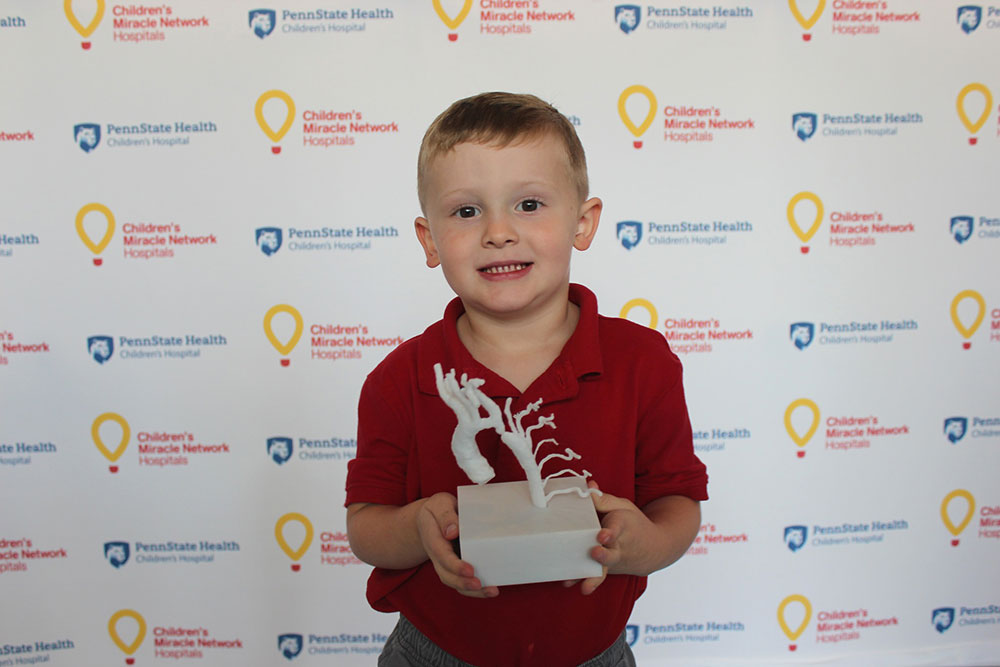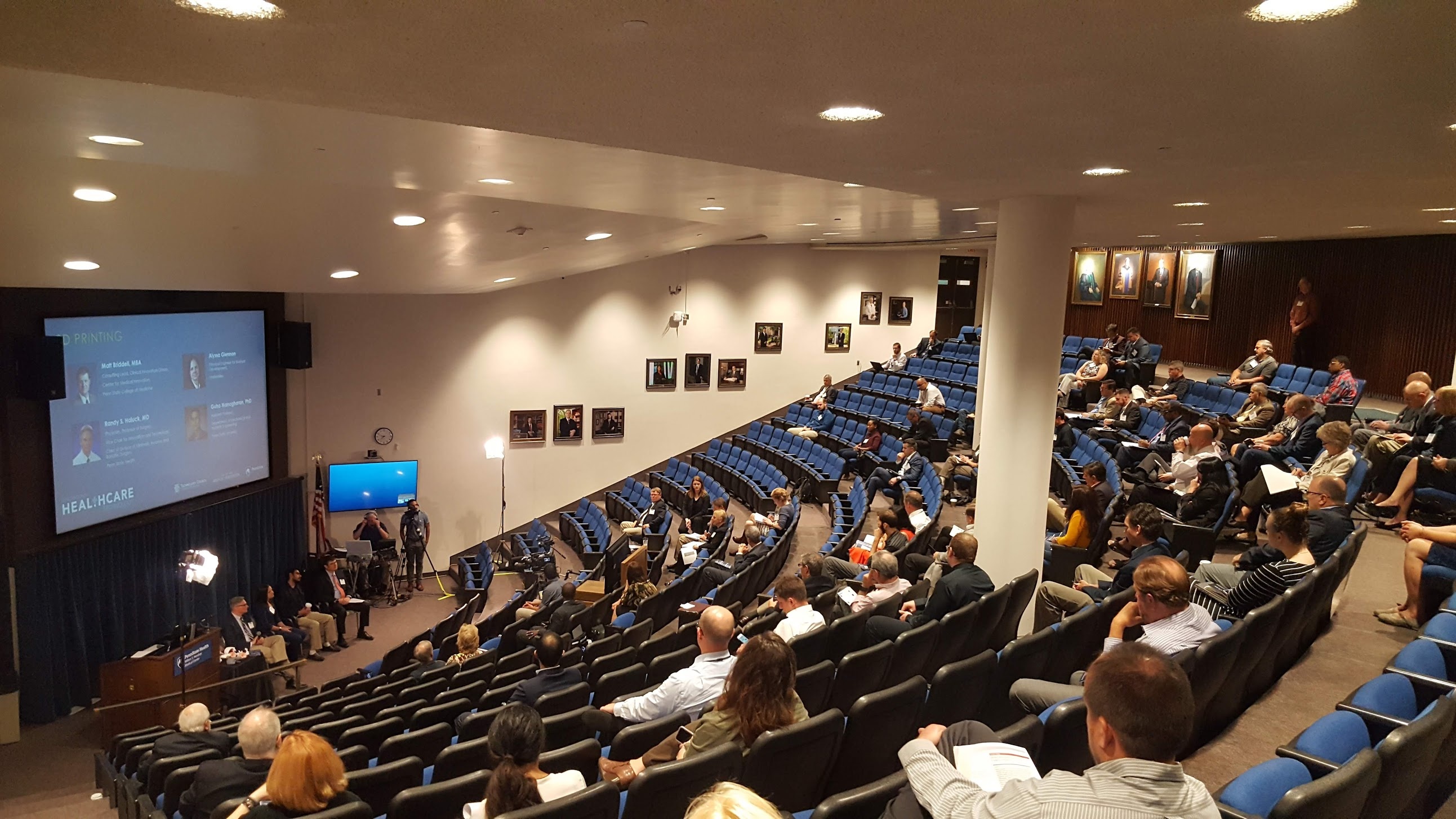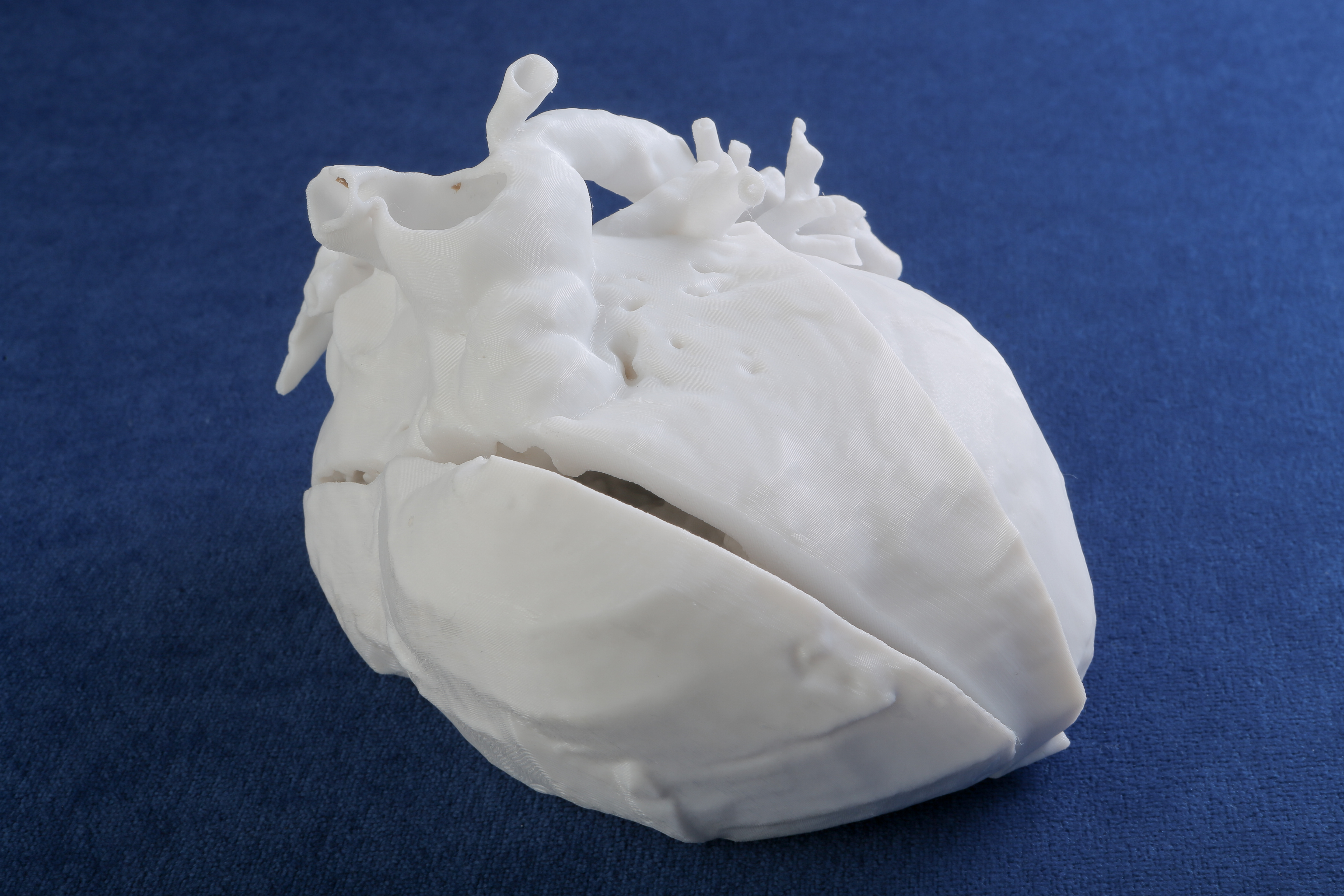Focus on emerging technology brings better patient care

By Carolyn Kimmel
When Dr. Robert Tunks sits down with the concerned parents of a child found to have a heart defect, a 3D model of their child’s heart can go a long way in fostering understanding of the treatment options.
The model, generated from data collected from the child’s CT scan or MRI, gives doctors the ability to study a 3D replica of the heart and blood vessels that is unique to that individual patient. This allows for the medical team and families alike to be as prepared as possible prior to a child undergoing surgery or other intervention.
“This technology improves our ability to counsel families in a meaningful and compassionate way,” said Tunks, a pediatric cardiologist at Penn State Health Children’s Hospital. “It’s such a valuable resource for us and one that directly benefits the patients we care for.”
Rapidly evolving 3D technology was one of several timely topics presented at the 8th Annual Innovations in Healthcare Technology Conference sponsored by the Technology Council of Central PA (TCCP) and hosted by the Center for Medical Innovation at Penn State College of Medicine on Oct. 8.
In addition to surgery planning, the highly accurate 3D models are excellent tools for teaching anatomy to College of Medicine students and residents, said Dr. Randy Haluck, who has been involved with the center’s Surgery Innovation Group for the past 10 years and spoke at the conference.
The conference also highlighted cybersecurity and artificial intelligence applications in health care. Speakers and panelists came from Penn State University, Highmark, Select Medical, Materialise, Genoa Telepsychiatry and Wellsheet, among others.
Matthew Snyder, Penn State Health’s vice president, chief information security officer, said that he is continually amazed at how misunderstood the issue of cybersecurity is among businesses—namely, that’s it’s a one-time problem that can be addressed and solved.
“Cybersecurity will continue to be a challenge for years to come,” he said “We are encountering risks that didn’t exist three years ago, and next year we’ll encounter new cyber risks that did not exist previously.”
The plethora of information generated in the health care sector is a treasure trove of digital information, he said.
“We have seen health care information being targeted by a wide spectrum of attackers from cybercriminals to nation states,” Snyder said. “In some cases, we still don’t know the motive of specific attackers and how they intend to use the information they have stolen.”
While many people tend to think “smart” devices are innovative and desirable, Snyder said his first thought is “exploitable” and highlighted the fact that many devices are not designed with basic security safeguards.

The 8th Annual Innovations in Healthcare Technology Conference at Penn State College of Medicine highlighted 3D technology, cybersecurity and artificial intelligence applications in health care.
Recent nationwide malware attacks like WannaCry proved that cybersecurity issues could transfer from the intangible world to the physical world when parking garages, entire banking systems and, yes, hospitals experienced disruptions, Snyder said.
In the health care world, elective surgeries were cancelled, imaging service and electronic health records were inaccessible and providers were asked to revert to paper charting, he said.
“Health care continues to be the No. 1 target and suffers more breaches than other industries,” Snyder said. “The cyber arms race will continue to put immense pressure on businesses and corporations to respond from threats emerging from cyberspace.”
Penn State College of Medicine and TCCP are natural partners in the advancement of technological innovation within south central Pennsylvania, said Michele Washko, consulting lead for the Therapeutic Innovation Group within the Center for Medical Innovation.
“Both are investing heavily in innovation,” she said. “And events like this one showcase those efforts and foster networking and information sharing as well.”
The annual conference is open to anyone but primarily draws health care IT professionals from a range of companies throughout the region.
“Accelerating innovation is a way to advance patient treatment and become more efficient in the delivery of health care,” said Erika Swift, associate director of the Center for Medical Innovation. “That’s why our center regularly sponsors events like this one. We are focused on driving health care innovation generated by our world-class researchers and clinicians to positively impact human health, not only locally but worldwide.”
The center also sponsors informal, drop-in Innovation Cafés at least once a quarter to bring together Penn State Health and College of Medicine faculty, staff and students with entrepreneurs, investors, economic development organizations, government agencies and community members.

A 3D heart model gives doctors the ability to study the patient’s unique heart and blood vessels before performing surgery or other interventions.
If you're having trouble accessing this content, or would like it in another format, please email Penn State Health Marketing & Communications.
